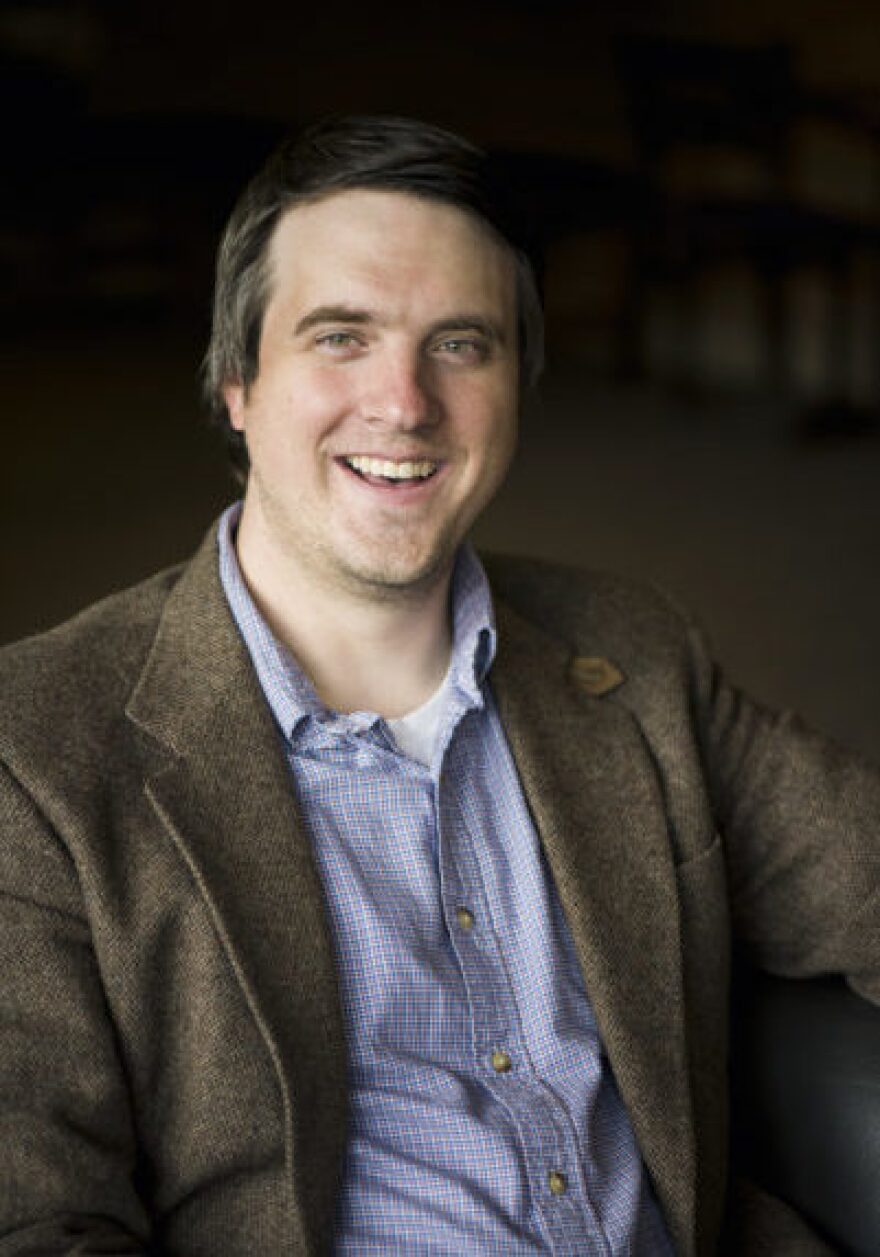Films from the “silent” era were not usually viewed soundlessly; most were accompanied live by a pianist or organist. And it's that sound of a solo keyboardist – playing up-tempo runs for a chase scene, or minor chords for a tragic one – that many people still think of when they imagine music for films from before talkies.
The Kyle Simpson Chamber Orchestra performs scores for films by Georges Melies: 7:30 p.m. Sat., Jan. 25. Andrew Carnegie Free Library & Music Hall, 300 Beechwood Ave., Carnegie
Composer Kyle Simpson wanted something more for one of his favorite artists, Georges Méliès, the French filmmaker who pioneered cinema as a medium for fantasy. Saturday, Simpson conducts an 18-piece orchestra in the Pittsburgh premiere of his new scores for two Meliés films, “A Trip to the Moon” (1902) and “Kingdom of the Fairies” (1903).
“My hope is, you get that sense that the music is supporting the story but also providing a contemporary understanding of the story as well,” said Simpson, a music professor at Washington & Jefferson College whose works have been performed internationally, at festivals including the Alba Music Festival, in Italy.
Méliès, born in 1861, was a stage magician who took up film in the 1890s. The medium was in its infancy: Reels from the studios of innovators like Thomas Edison and Méliès’ countrymen the Lumiére brothers were short and direct, typically documenting the everyday (as in the Lumiéres' literally titled 1895 short "Arrival of a Train at La Ciotat"). With films like “Trip to the Moon” and “Kingdom of the Fairies,” Méliès became cinema’s first great creator of imagined worlds, along the way inventing or popularizing such techniques as the dissolve, the superimposition, and stop-motion photography.

He made hundreds of films. And in “Moon,” he created one of cinema’s most enduring images, the shot of the Man in the Moon taking a rocket ship to the eye.
“I just think that he was able to do so much under the constraints that he had as a filmmaker in the early 1900s,” said Simpson. “I’m always just amazed at what he was able to produce. The visual effects that he has in these films are so ahead of their time.”
The two films run less than 20 minutes each (feature-length films were a decade or so away). But they are packed with fanciful imagery, a combination of costumes and painted backdrops.
In “Trip to the Moon,” a group of wacky, bearded scientists board a bullet-shaped vessel that’s shot into space by a fantastically long cannon. Dressed in frock coats, top hats, and knickers, they land, and are promptly captured by the moon’s denizens, who are notably acrobatic and capable of disappearing in puffs of smoke. An escape, a chase, and more follow.
“Kingdom of the Fairies” is a romantic adventure that depicts a prince falling in love with a princess whom he must then rescue from the clutches of an evil fairy.
In the silent era, few films had original scores. Most accompanying music was cobbled together from an “encyclopedia” of themes adaptable to different films. The William Tell Overture, for instance, earned its keep in countless chase scenes.
Simpson’s score for “Kingdom of the Fairies” especially showcases his use of the leitmotiv approach, wherein each character has a musical theme — as in “Star Wars” and countless other films.
“The prince has his theme. The princess had her theme. The 'Baba Yaga,' the evil fairy, had his theme. And there’s also a good fairy, and she had her theme as well,” said Simpson.
The scores premiered in November, at the DiMenna Center for Contemporary Music, in New York City.
Simpson said Méliès, too, made his films with the idea that they’d be accompanied live by musicians. He believes it was likely the popular “salon music” of the day, short pieces written for solo piano.
The Pittsburgh premiere of Simpson's new scores is Saturday, at the Andrew Carnegie Free Library & Music Hall, in Carnegie.
While the combined running time of the two films is only about a half hour, it’s a full-length program that also includes a performance by the Pittsburgh-based Red Line String Quartet of Philip Glass’s String Quartet No. 3, based on his score for the film “Mishima: A Life in Four Chapters.” The quartet will join the Kyle Simpson Chamber Orchestra to peform Simpsons new scores.









